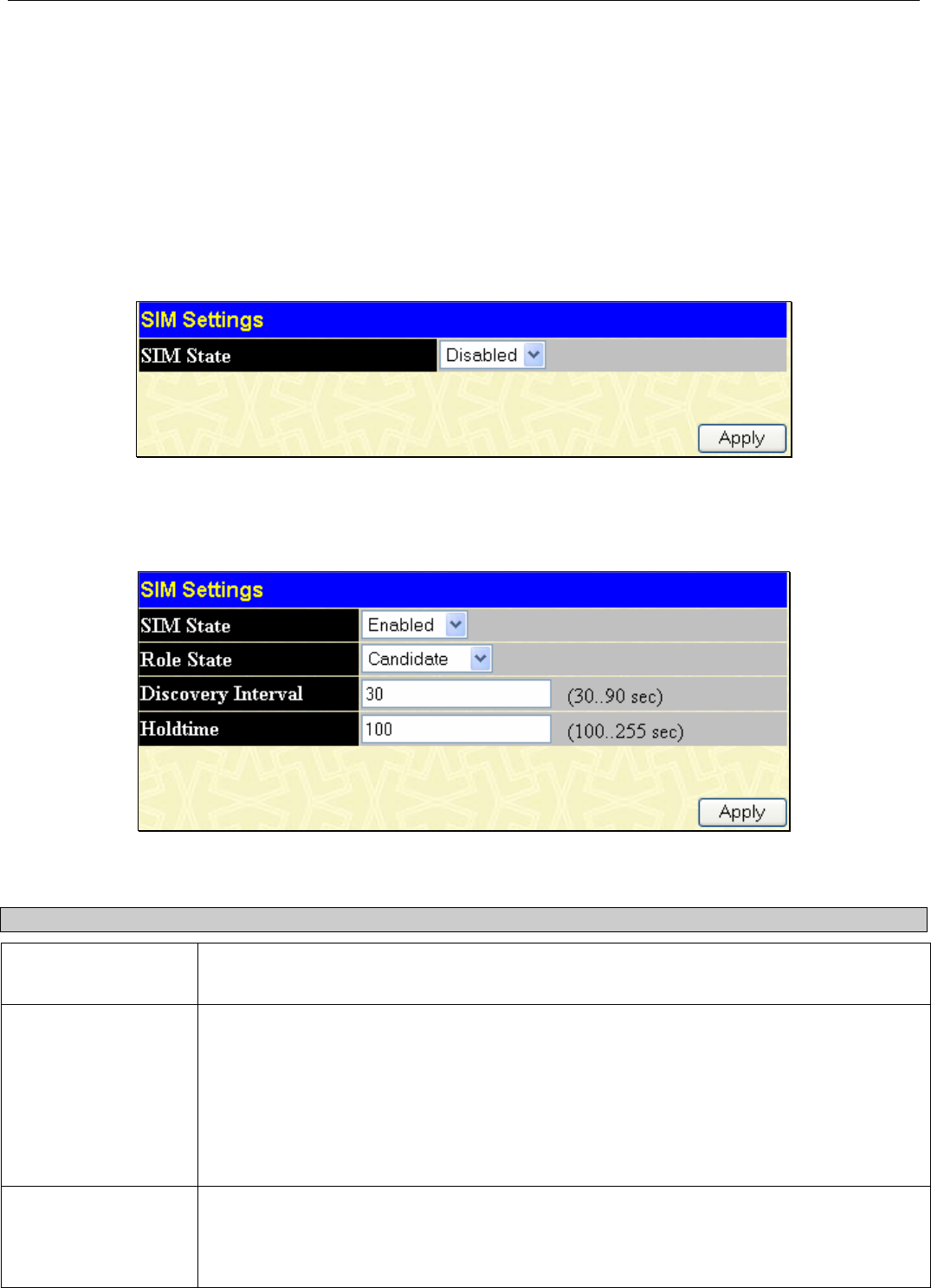
DES-3010F/DES-3010FL/DES-3010G/DES-3016/DES-3018/DES-3026 Fast Ethernet Switch Manual
60
execution, the CS may receive a response packet from the MS, which it will encode and send it back to the
administrator.
When a CaS becomes an MS, it automatically becomes a member of the first SNMP community (include
read/write and read only) to which the CS belongs. However, if a MS has its own IP address, it can belong to
SNMP communities to which other switches in the group, including the CS, do not belong.
SIM Using the Web Interface
All switches are set as Candidate (CaS) switches as their factory default configuration and Single IP
Management will be disabled. To enable SIM for the Switch using the Web interface, click Administration
> Single IP Settings > SIM Settings
Figure 6- 35. SIM Settings window (disabled)
Change the SIM State to Enabled using the pull down menu and click Apply. The screen will then refresh
and the SIM Settings window will look like this:
Figure 6- 36. SIM Settings window (Enabled)
The following parameters can be set:
Parameters Description
SIM State
Use the pull down menu to either enable or disable the SIM state on the Switch. Disabled will
render all SIM functions on the Switch inoperable.
Role State
Use the pull down menu to change the SIM role of the Switch. The two choices are:
• Candidate - A Candidate Switch (CaS) is not the member of a SIM group but is
connected to a Commander Switch. This is the default setting for the SIM role.
• Commander - Choosing this parameter will make the Switch a Commander Switch
(CS). The user may join other switches to this Switch, over Ethernet, to be part of
its SIM group. Choosing this option will also enable the Switch to be configured for
SIM.
Discovery Interval
The user may set the discovery protocol interval, in seconds that the Switch will send out
discovery packets. Returning information to a Commander Switch will include information
about other switches connected to it. (Ex. MS, CaS). The user may set the Discovery
Interval from 30 to 90 seconds.


















